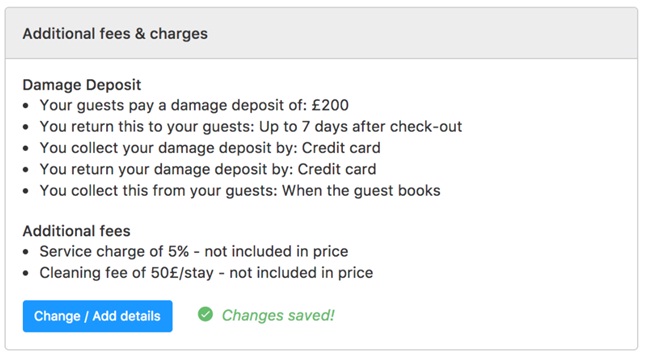The Beginner’s Guide to Short-Term Letting
The Beginner’s Guide to Short-Term Letting
Over the course of a decade, technology has shaped and shook the world of hospitality.
Now? Anyone on earth can be a hotelier, and everyone from backpackers to high-flying execs can tap into a million properties and more, in a matter of a few clicks.
Putting some figures to today’s beguiling world of gig hospitality, we look to Airbnb, which has welcomed 60 million travellers in 34,000 cities around the world, and Booking.com, which nowserves up more than 1.5 million proprieties around the globe.
For those considering this fast paced and profitable world for their property, there is money to be made, yet this realm is not for the faint of heart. There’s the boring but wholly essential things to understand – stuff like tax implications and insurance coverage; then, there’s homework to be done if you’re to achieve optimal rental yield and occupancy. With so much to understand, learn and organise, we’d better get to work…
The hospitality gig economy – How does it work?
The hospitalitygig economy is booming – allowing guests and property owners to embrace technology to connect them with one another.
The premise is simple – the property owner posts their property on a website such as Booking.com or Airbnb, and guests search and book overnight stays online or by app.
While there are also other websites, such as Homeaway and Flipkey, we’re going to focus on the two biggest players in the UK market – Airbnb and Booking.com
Airbnb versus Booking.com
It’s hard to believe that Airbnb has been around for just nine years; to say it’s come a long way would be a woeful understatement, as its forecasted profits for 2020 seem set to top $3 billion.In comparison, Booking.com is a complete newcomer, having only opened their digital doors to homestays as of 2015.
Today, the average London Airbnb host nets themselves a cool £135 per night – not to be sniffed at. As for Booking.com properties? The stats are harder to come by, but it’s accepted by hospitality traders everywhere that it’s just about the biggest player in the hotel room market.
When weighing up which platform to opt for, the primary differences come down to complexity and damage coverage. The latter point we’ll move onto in the next section. For now, let’s tackle the complexity – Airbnb is by far the easiest offering, allowing you to list within a matter of 30 minutes or less.In contrast, setting up business on Booking.com is a drawn-out process when it comes to adding your own payment processing and policies, and the dashboard isn’t as intuitive as the user-friendlieroffering from Airbnb.
You also need to consider the huge gulf in % fees – with Booking.com being 12% higher than the more purse-friendly 3% of Airbnb.
So, where to advertise? Despite Airbnb delivering many advantages over and above Booking.com, our best advice formaximum exposure is to advertise on both platforms.
Guest screening
Airbnb allows you to screen and verify guests prior to confirming their booking. This is done by Airbnb’s verified ID process, as well as being able to communicate with the potential guest directly.
Booking.com lacks the ID verification process, however you can protect yourself by:
1. Only accepting bookings from guests that provide their credit card details
2. Setting up and using a payment processor (such as Stripe or PayPal)
Comparison of fees
|
|
Airbnb |
Booking.com |
|
Credit card fee |
None |
3% |
|
Subscription fee |
None |
None |
|
Booking fee |
3% |
15% |
Getting paid
Airbnb releases payment around 24 hours after the scheduled check-in time, however the time it takes for this money to arrive in your account depends on your payment method. On the other hand, Booking.com requires that you take your own payment – presenting an invoice at checkout by paper, email or both.
Insurance
Airbnb provides insurance of up to £600,000, which is reassuring, in anyone’s book, but you should know that cash, jewellery, collectables and personal liability aren’t covered, so pay serious consideration to buying an added layer of home insurance if you want to be fully protected.
When using Booking.com, there’s no such peace of mind, and you’re left to your own devices with the ability to define your additional fees and charges (so be sure to include a damage deposit).

Rules, regulations and red tape
Uh oh. Legislation. It’s complex, but it must be understood and adhered to before you even think about posting that property listing of yours.
First, it can be a realdowner to find that even renting your property as an Airbnb or Booking.com rental for a single night has tax implications. Here’s the simplest guide we’ve found as to whether you’ll pay tax on your short term let.
There’s also regional differences to be considered. As the prime example, since early 2017 Greater London properties have been subjected to a maximum 90 night letting per calendar year – anything over this, and property owners must seek permission from the local council.
Last but by no means least, there’s health and safety. Any short term let is subject to the same standards as a traditionally let property. Overlook this at your (and your guests’) peril – as one Airbnb landlady found, flouting these rules could land you in hot water with the law.
Best practices for guest safety
– Provide contact information, including local emergency numbers and the nearest hospital – clearly state how you can be reached, should your guest need to touch base
– Supply an easily accessible first aid kit
– Install a fire alarm on every level and regularly test whether they work
– Take care to prevent fire: read and adhere to the Government’s recommended guidelines
– Make your property child-proof, even if you aren’t planning on marketing to families (here’s a helpful childproofing checklist, from BabyCentre UK)
– Clearly mark out the fire exit, and create a map to include in your welcome pack
– Walk through your property and identify access problems and areas where your guests could trip or slip, then take steps to remedy them
– Tell your guests whether and where CCTV may be in your property
– Make sure your home is fully ventilated and that your guests can control the temperature with clear instructions
Screened stayers? Check. Safe guests? Double check. Choice between Airbnb and Booking.com? Check, check and check. Now? You’re all set for your own check-ins.

18986 Responses